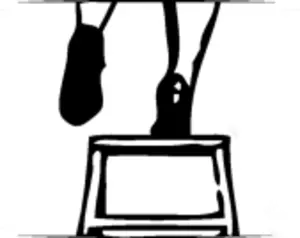- cross-posted to:
- becomeme@sh.itjust.works
- cross-posted to:
- becomeme@sh.itjust.works
If there’s a line to get on a crowded bus, do you wait your turn and refrain from elbowing your way past others even in the absence of police?
If you answered “yes”, then you are used to acting like an anarchist!
Are you a member of a club or sports team or any other voluntary organization where decisions are not imposed by one leader but made on the basis of general consent?
If you answered “yes”, then you belong to an organization which works on anarchist principles!
Do you believe that most politicians are selfish, egotistical swine who don’t really care about the public interest? Do you think we live in an economic system which is stupid and unfair?
If you answered “yes”, then you subscribe to the anarchist critique of today’s society — at least, in its broadest outlines.
Do you really believe those things you tell your children (or that your parents told you)?
“It doesn’t matter who started it.” “Two wrongs don’t make a right.” “Clean up your own mess.” “Do unto others…” “Don’t be mean to people just because they’re different.” Perhaps we should decide whether we’re lying to our children when we tell them about right and wrong, or whether we’re willing to take our own injunctions seriously. Because if you take these moral principles to their logical conclusions, you arrive at anarchism.
Do you believe that human beings are fundamentally corrupt and evil, or that certain sorts of people (women, people of color, ordinary folk who are not rich or highly educated) are inferior specimens, destined to be ruled by their betters?
If you answered “yes”, then, well, it looks like you aren’t an anarchist after all. But if you answered “no”, then chances are you already subscribe to 90% of anarchist principles, and, likely as not, are living your life largely in accord with them.



How do anarchists propose handling public works, healthcare, etc?
I think anarchism is a neat idea on paper, but how does it avoid becoming libertarianism in practice?
To my (self-labelled anarchist) view, anarchism is not a complete political doctrine and does not propose an off-the-shelf solution for all problems. It is a general direction: reduction of coercion in society. Hopefully to the point where none is required. “But what about criminals, prison, armed police?” yes, we don’t have non-coercive solution for everything. We just know that where no-coercive solutions exist, we should favor these. And that’s already a pretty radical program.
I am not sure what you specifically project in anarchism, and whether you are talking about the actual construction work or the decision-making but these typically tend to work better when all stakeholders are involved in the project and there are already public works cooperatives out there.
You mean health insurance or actual medical care? In my country (France) actual medical care is already done by a staff of people who accept a level of stress and a low pay they could easily escape given the qualifications required to work in a public hospital, but cling to it due to their will to accomplish a useful work. Remove administrative hassle and the need to pay for a right to live and they will happily work for free there:
Same applies for most teachers, researchers, caretakers, farmers, that I know.
Well, how we do it now?
During the Spanish Civil War, anarchists socialized many industries. What they found out was that you could just remove people from most management positions and continue work as before. Very rarely a manager was actually needed, and when it was they would simply elect one of themselves to fulfill the role for a while.
Talking about healthcare specifically, in many countries that have public healthcare, the system is already decentralized. Because it needs to be, otherwise they can’t properly answer the demands from their communities. Again, you just need to remove pointless middle-men and other workplace hierarchies (like physicians being more important than nurses), and stuff tends to get better.
There’s an entire essay just for how would anarchists do public service like healthcare. tl;dr, healthcare wasn’t even provided by states in the early modern period, it was provided by mutual aid societies. These societies had to be divested of power for states to monopolize the provision of services.
Community banking and funds mostly. Health-care similarly. It’s actually not really such a big problem to organize these things, so I always wonder why people give this as examples for why Anarchism wouldn’t work. If anything, large bureaucratic state systems make these more difficult and expensive.
I’m not trying to disprove anarchism, I’m trying to understand it.
I definitely think a lot of the inefficiencies that make people think we ‘need’ capitalism are caused by capitalism itself. People see these huge infrastructures and assume they’re necessary when they may well be so cumbersome that they detract from getting their stated task accomplished more than they contribute to it. Someone made a comment elsewhere about how much unnecessary management we have in our society, and I honestly think that’s a major component.
Work goes so much better when there isn’t someone breathing down your neck. Just a bunch of useless people lording over everyone for no reason and we waste sooo much time, effort, and resources on them.
I agree that the current system is broken, but I don’t know that this statement is inherently true. There are economies of scale, for example.
Why would that need a bureaucratic state apparatus? Anarchistic principles are extremely good at organizing things at scale.